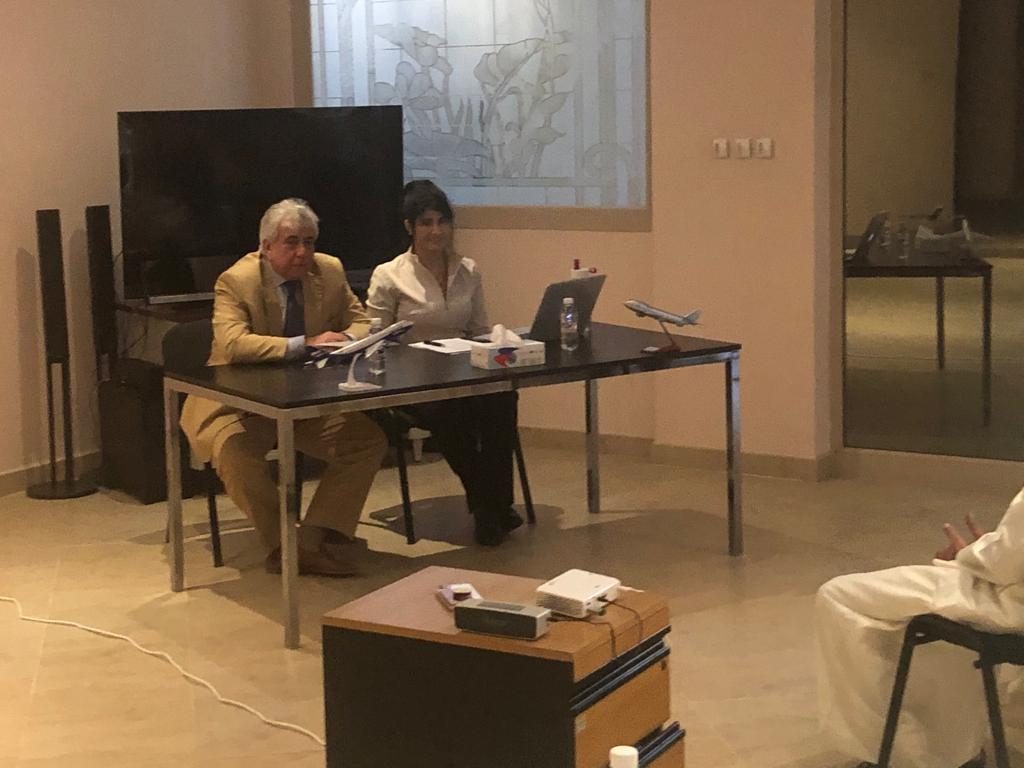São Paulo – The Embassy of Brazil in Kuwait hosted an event with local importers last week in a bid to promote Brazilian fruit. Backed by the Brazilian fruit exporters association Abrafrutas, the event set out to uncover the reasons why Brazilian fruit sales to Kuwait are weak, and to help enable those sales to increase.
The meeting happened at the Embassy seat in Kuwait City, and it was attended by key importers and distributors representing about ten different companies. A presentation was given on the workings of Brazil’s fruit industry, including information on production, export and logistics. Brazil is the third biggest fruit exporter in the world. Last year saw 44.3 million tonnes of fruit harvested, less than 3% of which got shipped abroad.

The chief adviser to the Embassy’s Trade and Investment Promotion Sector (Secom), Claudia Assaf, said importers were utterly interested in finding out about Brazilian fruit – which, despite its outstanding flavor and quality, tend to reach Kuwait at higher prices than the competition’s due to logistics issues. Apart from Assaf, the meeting was attended by Brazil’s ambassador to Kuwait, Norton de Andrade Mello Rapesta, and Secom technical assistant Merhie Youssef.
“To get access to Kuwait’s market, fruit exporters need to basically work on three fronts at once: to consider approaching the Gulf Cooperation Council (GCC) as one market, instead of thinking about each country separately; to include all GCC countries in deal-seeking missions; and to consider logistical alternatives that will lower transportation costs for importers, so Brazilian fruit can reach end buyers at competitive prices,” Assaf told ANBA.

She said Brazilian fruit reaches the Gulf through the intermediation of key re-export hubs like the Netherlands and the United States, and most of the time it will also go through a second regional hub, like Jebel Ali, in Dubai. “The amount of middlemen, coupled with heavy competition from equally good fruit from nearer countries, and the fact that there are no missions to promote Brazilian fruit in Kuwait, are the main obstacles that explain the fact that there’s no Brazilian fruit in Kuwait,” she explained.
Assaf told the importers that the biggest buyers of Brazilian fruit are Netherlands and United States, plus some European Union countries. These markets demand high-quality product, and this in itself speaks to the of product from Brazil. According to the diplomat, the Netherlands imported USD 283 million worth of Brazilian fruit last year – or 31.5% of total exports from Brazil – and re-exported the product across the world, including the Gulf.

Abrafrutas projects manager Jorge Souza (pictured at the beginning of this story, on the big screen) joined the event via video conference. He discussed the association’s work, the challenges inherent to the shipping of fruit, and Abrafrutas’ plans to add Kuwait to a 2020 mission to promote Brazilian fruit across the region. He said that one way to work around Dubai’s would be direct negotiation with Brazilian exporters. As per data compiled by the Arab Brazilian Chamber of Commerce, Kuwait only imported USD 3.3 million worth of fruit directly from Brazil last year.
According to Assaf, the meeting saw invaluable information shared, and enabled the Embassy to understand the structure of the market and the key reasons behind the lackluster sales. Apart from working around indirect exports and trying to cut logistics costs, Claudia Assaf finds it important for importers and exporters from Brazil and Kuwait to be in touch. “We believe that Brazilian exporters and Kuwaiti importers must increase their mutual awareness. That can lead to creative solutions,” she argued.
Translated by Gabriel Pomerancblum




